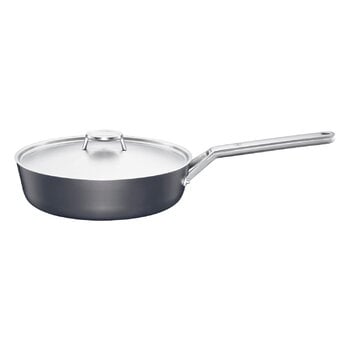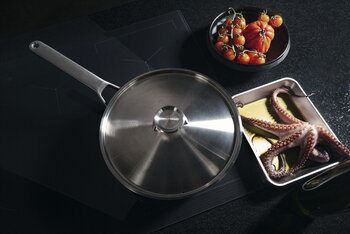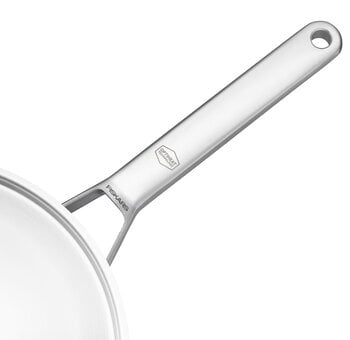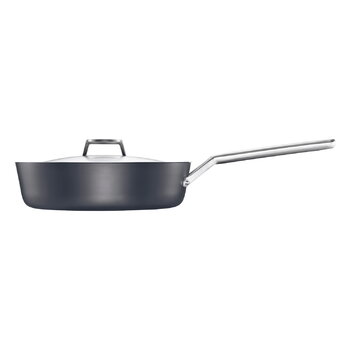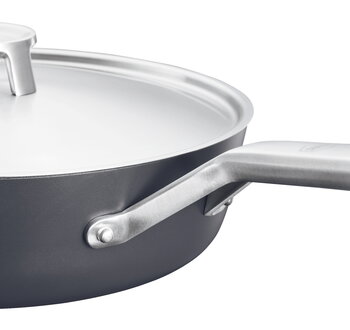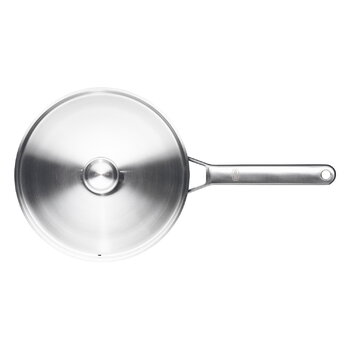Fiskars' Taiten 26 cm sauté pan is a sustainable and durable choice for everyday cooking, especially when preparing larger batches of sauces. Made of high-quality recycled aluminium and featuring a lid, the pan has features that will captivate even the most enthusiastic home cooks.
Taiten sauté pan features a four-layer coating that ensures your food won't stick to the pan and averts scratches during use in use. The special Optiheat technology prevents the pan from overheating, thus increasing its lifetime. The timeless design is complemented by a sturdy stainless steel handle, providing the chef with a confident and secure grip. Like the other pans and pots in the Taiten collection, the sauté pan can withstand temperatures up to 240°C and is suitable for use on all hobs and in the oven.
